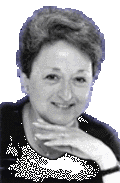Menu


- Elayne Clift
You can go Home Again, but it’s not Always Easy
Elayne Clift writes for Women and Life on Earth from Saxtons River, Vt. USA.
“What was it like?” everyone asks me. “Was it amazing? Was it hard to come back? Do you miss it?”
The answer to the last three questions is a resounding Yes! But the first query requires more than a monosyllable in response; it calls for reflection, for rumination, for remembering.
Last year, on August 1 to be precise, I traveled half way around the world. Armed with books and other resources, a laptop computer, lots of hot weather clothes, a modicum of chutzpah and my fair share of trepidation, I boarded Thai Airways’ direct flight from New York to Bangkok. Then I flew on to Chiang Mai, Thailand’s second largest city and northern capital, where I would teach for a year at a small private university that offers an international program for students from all parts of Asia.
It was, indeed, an amazing year, captured in a book I wrote called ACHAN: A Year of Teaching in Thailand, which is now under publisher’s review. (Achan means teacher in Thai.) And it was hard to come back; harder than I’d expected, and yes, I miss it, even though I thought I’d had enough of tropical heat, insane drivers, pollution, passivity, noisy mega-malls, noodles and rice.
But now that I’ve been back for two months, I am beginning to reflect upon the lessons and the impact of that truly incredible year -- a year in which I traveled extensively throughout Southeast Asia, learned bits of a new language and a new culture, thought about Buddhism, made friends with people from Burma to Bali, mentored students, met monks, and made a life for myself far from my family and friends.
Perhaps it is important to know this about me: I thrive on challenge and change. I truly believe that variety is the spice of life. And whenever my work doesn’t scare me a little bit, I know it’s time to move on. Familiarity breeds the darkness of a storm cloud in me, whereas change is light, a way to feel my soul so that my heart can sprout fresh flowers as hearts are meant to do.
My heart, like my garden, blossomed in Chiang Mai. I found there a kind of quiet energy, a sense of self that was both calming and exhilarating. One friend called it a “deep meditation” although I never once sat in the lotus position. I also came to understand and to embrace one of the central tenets of Buddhism: the idea of impermanence. To put it in the vernacular, “nothing lasts forever.” Or as one wise Greek philosopher put it, “Change is the only reality.”
In Thailand, I came to understand and accept a kind of fatalism, although I am not by nature a fatalist. “Whatever will be, will be. Que sera, sera.” I knew that my year of pleasant peacefulness and quasi-solitude would come to an end even if I didn’t want it to, and that something else would follow just as surely as something had preceded it. It was a transcendent experience, that kind of acceptance. I think it changed me and made me more patient.
Patience is called for in a country where people do things slowly, or don’t do them at all (or don’t speak your language). Perhaps it’s the heat, oppressive before the rains come and only marginally bearable otherwise. Maybe it’s the deep-seeded cultural difference. One thing is certain: In Thailand, unlike in America, people don’t live to work; they work to live, taking great joy in simple things like eating, shopping, spending time with family, preparing for and enjoying ritual and festivals. In that spirit, I loved being with my friends (often over a fifty-cent bowl of noodles), reading in my sun-bathed sitting room on a Saturday afternoon, or writing at my desk in the evening stillness. In Thailand, I received virtually no mail, the phone hardly rang, I didn’t belong to one committee or board – and I was blissfully content.
This simple life was not without its frustrations, academic or otherwise. But I learned to keep what Thai people refer to as “a cool heart.” Mai pen rai. Nevermind. This too will pass. It’s a wonderfully resilient perspective.
In Chiang Mai, a delightful small town really, I had wonderful friends. (Some of us brought The Vagina Monologues to Thailand, raising funds for The Burmese Women’s Union.) I did volunteer work at an orphanage, wrote for the local paper, hung out with my neighbor and best-Thai-girlfriend, Lena, shopped at the colorful night market, joined in festivals, worried about my lesson plans. But underneath it all, like a pool of cool water, floated that extraordinary calm, that sense of self without angst, wholeness.
I once wrote these words in an essay: “For me, the journey beats the destination hands down.” But in Chiang Mai, the journey was the destination. I was there, really, fully there, in the present, without longing. It was an extraordinary experience. I’m sorry it had to come to an end.
But then, “nothing lasts forever.” And if I’m truly blessed (or have good karma?) I will either return to Thailand or find another venue that is equally uplifting in a quiet sort of way. So, mai pen rai. There is no permanence in this world. Still, perhaps if I’m lucky, I will find once more – who knows where? -- that wonderful, almost enigmatic calm that enveloped me during my year in Chiang Mai. I really could wish for nothing greater.
